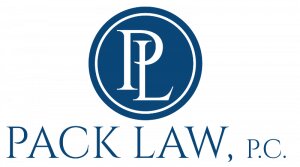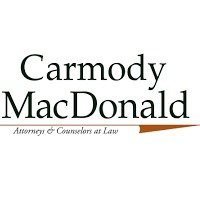Best Creditor Lawyers in Missouri
Share your needs with us, get contacted by law firms.
Free. Takes 2 min.
Or refine your search by selecting a city:
List of the best lawyers in Missouri, United States
About Creditor Law in Missouri, United States
Creditor law in Missouri deals with the legal rights and processes involving individuals, businesses, or entities who are owed money by another party. In Missouri, creditor law focuses on debt collection, enforcing judgments, and protecting both creditor and debtor rights. The legal framework allows creditors to seek repayment through negotiation, court processes, and, if necessary, collection activities such as garnishments or liens. Missouri's statutes provide a balance between enabling creditors to recover debts and ensuring debtors are treated fairly.
Why You May Need a Lawyer
There are many situations where someone may need legal advice or representation regarding creditor matters. A few common examples include:
- You are a business or individual trying to recover a debt and need guidance on collection procedures.
- You have received a judgment against a debtor and want to understand how to enforce it.
- You are facing complicated negotiations or disputes regarding payment terms or collections.
- You have been accused of violating debt collection laws while attempting to recover a debt.
- You are dealing with bankruptcy proceedings that may affect your ability to collect a debt.
- You need to understand the statute of limitations on collecting certain debts in Missouri.
- You want to avoid common legal pitfalls and ensure compliance with state and federal laws.
A lawyer can provide strategic advice, handle necessary paperwork, represent you during negotiations and court proceedings, and help protect your interests throughout the debt collection process.
Local Laws Overview
Missouri creditor law is shaped by both state and federal statutes. Key state laws include the Missouri Merchandising Practices Act, the Fair Debt Collection Practices Act (FDCPA) as adopted by Missouri, and numerous provisions within Missouri Revised Statutes such as Chapter 425 (Debt Adjusters) and Chapter 511 (Judgments). Some important points to be aware of:
- Missouri allows wage garnishment of up to 25 percent of a debtor's disposable earnings for consumer debts, subject to certain exemptions.
- The statute of limitations to collect most debts in Missouri is typically five years for written contracts and open accounts, but could be longer or shorter depending on the type of debt.
- Missouri law limits certain collection activities and requires creditors and collection agencies to avoid harassment, false statements, or unfair practices.
- Certain assets and property are exempt from collection or execution, including some home equity and essential personal property.
- Missouri courts allow for the issuance of "executions" for judgments, which can result in the seizure of assets or bank account garnishments, following strict legal procedures.
- Certain types of debts, such as child support or tax obligations, may have different rules and protections.
Understanding the specific legal requirements and protections in Missouri is essential for any creditor action.
Frequently Asked Questions
What is the statute of limitations for collecting a debt in Missouri?
For most written contracts and open accounts, the statute of limitations is five years, but it can vary based on the type of debt.
How does wage garnishment work in Missouri?
A creditor can obtain a court order to garnish up to 25 percent of a debtor's disposable earnings after obtaining a judgment. Garnishment is subject to federal and state exemptions.
Can a creditor seize personal property in Missouri?
Yes, if a court judgment has been entered and the proper legal procedures are followed, a creditor can attempt to seize or "levy" some personal property, but certain exemptions apply.
What steps are involved in collecting a debt legally in Missouri?
The typical process includes demanding payment, filing a lawsuit if not resolved, obtaining a judgment, and then enforcing that judgment through garnishment, liens, or execution.
What types of assets are exempt from creditor collection in Missouri?
Common exemptions include some home equity, personal property such as clothing and certain household goods, wages up to a limit, and certain retirement accounts.
Are there any laws protecting consumers from unfair debt collection practices?
Yes, both state and federal laws, including Missouri's adaptation of the FDCPA, prohibit harassment, threats, misrepresentation, and unfair practices by creditors and collection agencies.
What should I do if a debtor files for bankruptcy?
You should consult an attorney promptly. Bankruptcy may halt your collection efforts and affect your rights, but you may be able to file a claim in the bankruptcy case.
Can a creditor contact a debtor at work in Missouri?
Generally, a creditor may contact a debtor at work unless the debtor notifies the creditor not to, or the employer prohibits such contacts. Harassment or repeated calls may violate consumer protection laws.
Can a creditor pursue a debt after the statute of limitations has expired?
Creditors may attempt to collect, but they cannot use the courts to enforce collection through a lawsuit after the statute of limitations expires.
Do I need a lawyer to collect a debt in Missouri?
While you are not required to have a lawyer, legal representation ensures compliance with complex laws and enhances your chances of successfully recovering debts without violating debtor protections.
Additional Resources
People seeking additional information or assistance can contact the following Missouri-based resources:
- Missouri Attorney General's Office - Consumer Protection Section
- Missouri Bar Association - Lawyer Referral Service
- Missouri Courts - Self-Help and Forms
- Federal Trade Commission - Fair Debt Collection Practices Act Guide
- Local Legal Aid Services or Nonprofit Consumer Advocacy Groups
Next Steps
If you require legal assistance with a creditor matter in Missouri, consider the following steps:
- Gather documentation related to the debt or dispute, such as contracts, payment records, and correspondence.
- Consult with a Missouri attorney who has experience with creditor law to evaluate your situation and identify your legal options.
- Reach out to local legal aid clinics or the Missouri Bar if you need help locating qualified legal professionals.
- Understand your rights and responsibilities as a creditor before taking any collection actions.
- Stay informed about updates to both state and federal laws that may affect creditor rights and practices.
A knowledgeable attorney can guide you through the process, help you avoid common pitfalls, and increase the likelihood of a positive outcome in your creditor matter.
Lawzana helps you find the best lawyers and law firms in Missouri through a curated and pre-screened list of qualified legal professionals. Our platform offers rankings and detailed profiles of attorneys and law firms, allowing you to compare based on practice areas, including Creditor, experience, and client feedback.
Each profile includes a description of the firm's areas of practice, client reviews, team members and partners, year of establishment, spoken languages, office locations, contact information, social media presence, and any published articles or resources. Most firms on our platform speak English and are experienced in both local and international legal matters.
Get a quote from top-rated law firms in Missouri, United States — quickly, securely, and without unnecessary hassle.
Disclaimer:
The information provided on this page is for general informational purposes only and does not constitute legal advice. While we strive to ensure the accuracy and relevance of the content, legal information may change over time, and interpretations of the law can vary. You should always consult with a qualified legal professional for advice specific to your situation.
We disclaim all liability for actions taken or not taken based on the content of this page. If you believe any information is incorrect or outdated, please contact us, and we will review and update it where appropriate.
Browse creditor law firms by city in Missouri
Refine your search by selecting a city.














